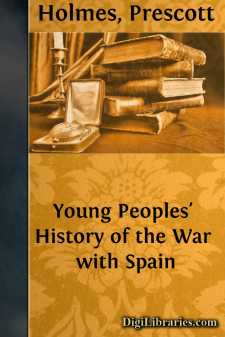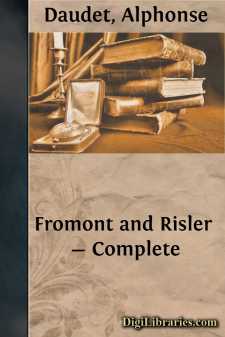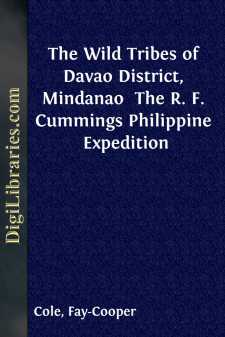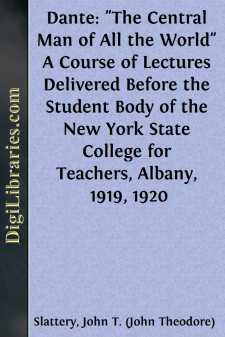Categories
- Antiques & Collectibles 13
- Architecture 36
- Art 48
- Bibles 22
- Biography & Autobiography 815
- Body, Mind & Spirit 144
- Business & Economics 28
- Children's Books 18
- Children's Fiction 14
- Computers 4
- Cooking 94
- Crafts & Hobbies 4
- Drama 346
- Education 58
- Family & Relationships 59
- Fiction 11834
- Games 19
- Gardening 17
- Health & Fitness 34
- History 1378
- House & Home 1
- Humor 147
- Juvenile Fiction 1873
- Juvenile Nonfiction 202
- Language Arts & Disciplines 89
- Law 16
- Literary Collections 686
- Literary Criticism 179
- Mathematics 13
- Medical 41
- Music 40
- Nature 179
- Non-Classifiable 1768
- Performing Arts 7
- Periodicals 1453
- Philosophy 65
- Photography 2
- Poetry 896
- Political Science 203
- Psychology 44
- Reference 154
- Religion 515
- Science 126
- Self-Help 85
- Social Science 82
- Sports & Recreation 34
- Study Aids 3
- Technology & Engineering 59
- Transportation 23
- Travel 463
- True Crime 29
Sort by:
by:
Prescott Holmes
CHAPTER I. THE CAUSE OF THE WAR. On April 21st, 1898, a war began between the United States and Spain. All the other countries of the world felt an interest in it, but did not take any part in it. They were what we call "neutral"—that is, they did not help either side. As soon as the war was proclaimed a great wave of excitement swept through the United States, from shore to shore. Flags were...
more...
by:
Alphonse Daudet
ALPHONSE DAUDET Nominally Daudet, with the Goncourts and Zola, formed a trio representing Naturalism in fiction. He adopted the watchwords of that school, and by private friendship, no less than by a common profession of faith, was one of them. But the students of the future, while recognizing an obvious affinity between the other two, may be puzzled to find Daudet's name conjoined with theirs....
more...
by:
Anonymous
CHAPTER I.Egyptian, Assyrian, Hebrew, and Phoenician Dancing. The Ritual Dance of Egypt. Dancing Examples from Tomb of Ur-ari-en-Ptah, 6th Dynasty, British Museum. Description of Dancing from Sir G. Wilkinson; of the Egyptian Pipes and Hieroglyphics of Dancing, &c. Phoenician Round Dances, from a Limestone Group found at Cyprus, and Bronze Patera from Idalium, Cyprus.In this work it is not necessary...
more...
CHAPTER I. GENERAL DUTIES OF OFFICERS IN RELATION TO ORDNANCE AND GUNNERY, AND TO MILITARY EQUIPMENTS AND EXERCISES. CAPTAIN. 1. THE CAPTAIN OR COMMANDING OFFICER will be careful to require that all the Ordnance Instructions are strictly enforced on board the vessel under his command; and although particular duties are assigned, and various instructions given to the other officers of the vessel, yet he...
more...
by:
Murray Leinster
It started in Greece on the day after tomorrow. Before the last act raced to a close, Coburn was buried to his ears in assorted adventures, including a revolution and an invasion from outer space! We're not given to throwing around the word "epic" lightly, but here is one! Swashbuckling action, a great many vivid characters, and a weird mystery—all spun for you by one of the master...
more...
by:
Jimmy Carter
Two years ago today we had the first caucus in Iowa, and one year agotomorrow, I walked from here to the White House to take up the duties ofPresident of the United States. I didn't know it then when I walked, butI've been trying to save energy ever since. I return tonight to fulfill one of those duties of the Constitution: to give to the Congress, and to the Nation, information on the state...
more...
IN MEMORIAM. (A. L. Gordon.) At rest! Hard by the margin of that seaWhose sounds are mingled with his noble verse,Now lies the shell that never more will houseThe fine, strong spirit of my gifted friend.Yea, he who flashed upon us suddenly,A shining soul with syllables of fire,Who sang the first great songs these lands can claimTo be their own; the one who did not seemTo know what royal place awaited...
more...
by:
Fay-Cooper Cole
HABITAT. The west coast of Davao Gulf between Daliao and Digos is dotted with small villages, the inhabitants of which are largely Bagobo who have been converted to the Christian faith and have been induced to give up their mountain homes and settle in towns. Back of this coast line rise densely timbered mountain peaks, lateral spurs from which often terminate in abrupt cliffs overlooking the sea. From...
more...
INTRODUCTION The development of the English novel is one of the triumphs of the eighteenth century. Criticism of prose fiction during that period, however, is less impressive, being neither strikingly original nor profound nor usually more than fragmentary. Because the early statements of theory were mostly very brief and are now obscurely buried in rare books, one may come upon the well conceived...
more...
DANTE AND HIS TIME To know Dante we must know the age which produced Christianity's greatest poet, he whom Ruskin calls "the central man of all the world, as representing in perfect balance the imaginative, moral and intellectual faculties, all at their highest." Other writers are not so dependent upon their times for our clear understanding of their books. Dante to be intelligible to the...
more...











